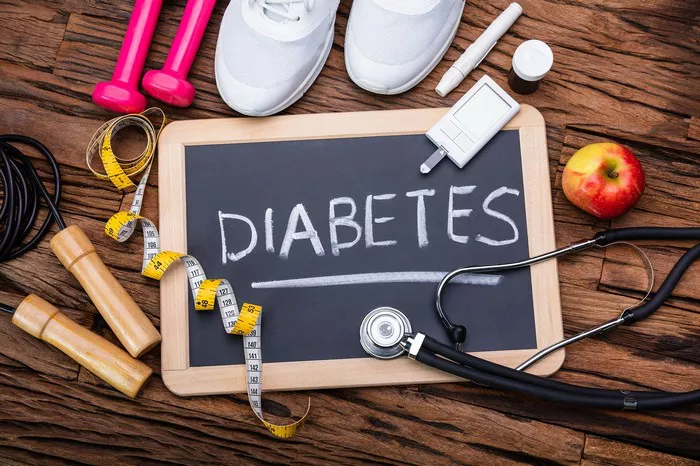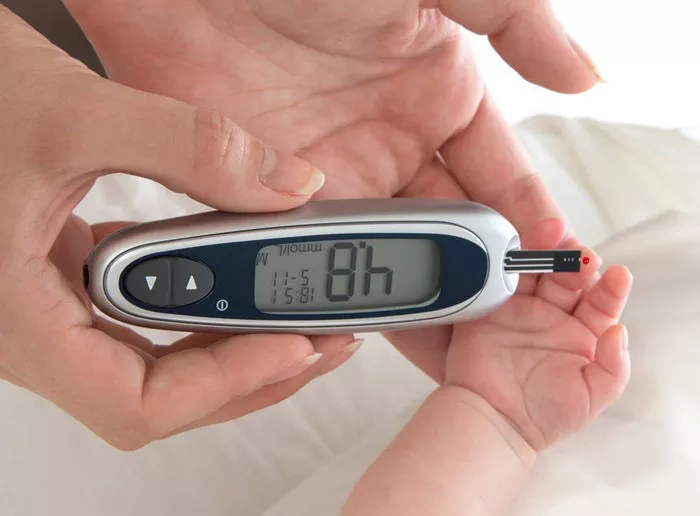Insulin resistance is a metabolic condition characterized by the body’s reduced responsiveness to the hormone insulin, leading to impaired glucose uptake by cells, elevated blood sugar levels, and compensatory hyperinsulinemia. It plays a pivotal role in the pathogenesis of type 2 diabetes mellitus (T2DM) and is closely associated with various other metabolic disorders, including obesity, hypertension, dyslipidemia, and cardiovascular diseases. In this article, we delve into the intricate mechanisms underlying insulin resistance, its clinical manifestations, diagnostic criteria, and therapeutic approaches.
Mechanisms of Insulin Resistance
Insulin, secreted by pancreatic beta cells in response to elevated blood glucose levels, facilitates the uptake and utilization of glucose by peripheral tissues, primarily skeletal muscle, adipose tissue, and the liver. It exerts its actions through the insulin receptor, a transmembrane protein tyrosine kinase. Upon binding to insulin, the receptor undergoes autophosphorylation, leading to the activation of downstream signaling cascades, including the phosphatidylinositol 3-kinase (PI3K) pathway and the mitogen-activated protein kinase (MAPK) pathway.
In insulin-resistant states, the normal signaling pathways mediated by the insulin receptor are disrupted, resulting in impaired glucose uptake and utilization. Several mechanisms contribute to the development of insulin resistance:
- Intracellular Signaling Alterations: Dysregulation of the PI3K pathway, particularly impaired phosphorylation of protein kinase B (Akt), leads to decreased translocation of glucose transporter 4 (GLUT4) to the cell membrane, reducing glucose uptake by skeletal muscle and adipose tissue.
- Inflammation: Chronic low-grade inflammation, characterized by elevated levels of proinflammatory cytokines such as tumor necrosis factor-alpha (TNF-α) and interleukin-6 (IL-6), interferes with insulin signaling pathways, promoting insulin resistance.
- Lipotoxicity: Excessive accumulation of lipid metabolites, such as free fatty acids and diacylglycerols, in insulin-sensitive tissues impairs insulin signaling and exacerbates insulin resistance through activation of serine kinases, leading to serine phosphorylation of insulin receptor substrate proteins.
- Mitochondrial Dysfunction: Impaired mitochondrial function in skeletal muscle and adipose tissue contributes to insulin resistance by disrupting cellular energy metabolism and promoting oxidative stress.
- Adipose Tissue Dysfunction: Adipocytes secrete adipokines, bioactive molecules that regulate metabolic homeostasis. Dysregulation of adipokine secretion, as seen in obesity, can lead to insulin resistance and systemic inflammation.
Clinical Manifestations and Diagnostic Criteria
Insulin resistance often precedes the development of overt hyperglycemia and clinical diagnosis of T2DM. It is frequently associated with a cluster of metabolic abnormalities, collectively known as the metabolic syndrome, which includes abdominal obesity, dyslipidemia (elevated triglycerides and decreased high-density lipoprotein cholesterol), hypertension, and impaired fasting glucose.
Clinical manifestations of insulin resistance may include:
- Hyperinsulinemia: Elevated fasting insulin levels are a hallmark of insulin resistance and serve as an early marker for the condition.
- Glucose Intolerance: Impaired glucose tolerance, characterized by elevated blood glucose levels following an oral glucose load, is indicative of insulin resistance and predisposes individuals to T2DM.
- Acanthosis Nigricans: Hyperpigmented, velvety plaques commonly observed in skin folds, such as the neck, axilla, and groin, are associated with insulin resistance and hyperinsulinemia.
- Polycystic Ovary Syndrome (PCOS): Insulin resistance is a key pathogenic factor in PCOS, contributing to hyperandrogenism, menstrual irregularities, and infertility in affected women.
The diagnosis of insulin resistance is primarily clinical, supported by laboratory investigations, including fasting insulin levels, oral glucose tolerance test (OGTT), and measurement of surrogate markers such as the homeostatic model assessment of insulin resistance (HOMA-IR) index. Imaging modalities, such as magnetic resonance spectroscopy (MRS) and positron emission tomography (PET), can assess tissue-specific insulin sensitivity and provide insights into metabolic dysfunction.
Therapeutic Approaches
Management of insulin resistance focuses on lifestyle interventions, pharmacotherapy, and targeted treatment of associated comorbidities to improve metabolic health and reduce the risk of cardiovascular complications. Key components of therapeutic strategies include:
- Dietary Modification: Adoption of a balanced diet rich in fiber, lean proteins, and healthy fats, with restricted intake of refined carbohydrates and sugary beverages, can help control blood sugar levels andpromote weight loss.
- Regular Physical Activity: Exercise improves insulin sensitivity, enhances glucose uptake by skeletal muscle, and promotes weight loss. Both aerobic exercise and resistance training have beneficial effects on metabolic parameters.
- Weight Loss: Achieving and maintaining a healthy body weight through calorie restriction and increased physical activity is essential for improving insulin sensitivity and metabolic outcomes in overweight and obese individuals.
- Pharmacotherapy: In cases where lifestyle modifications alone are insufficient, pharmacological agents such as metformin, thiazolidinediones (TZDs), glucagon-like peptide-1 (GLP-1) receptor agonists, and sodium-glucose cotransporter-2 (SGLT2) inhibitors may be prescribed to enhance insulin sensitivity, lower blood glucose levels, and mitigate cardiovascular risk.
- Bariatric Surgery: For severely obese individuals with T2DM and insulin resistance, bariatric surgery offers significant metabolic benefits, including weight loss, glycemic control, and improvement in insulin sensitivity.
Conclusion
Insulin resistance is a complex metabolic disorder characterized by impaired cellular response to insulin, leading to dysregulated glucose homeostasis and increased risk of T2DM and cardiovascular disease. Understanding the underlying mechanisms of insulin resistance and its clinical implications is crucial for early detection, risk stratification, and implementation of effective management strategies. By addressing lifestyle factors, optimizing pharmacotherapy, and targeting associated comorbidities, healthcare providers can mitigate the adverse consequences of insulin resistance and improve long-term metabolic outcomes for affected individuals.
Related topics:



























